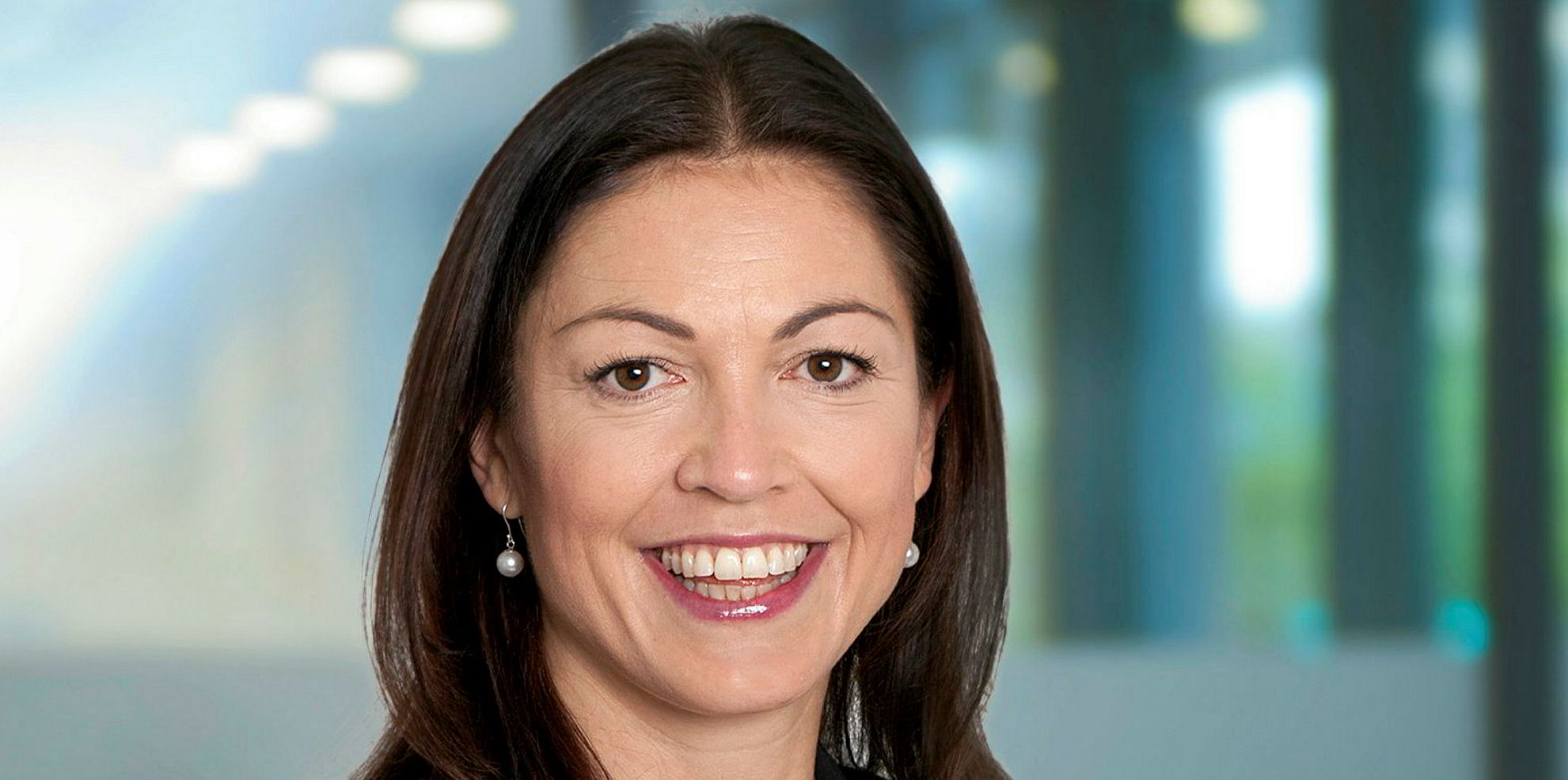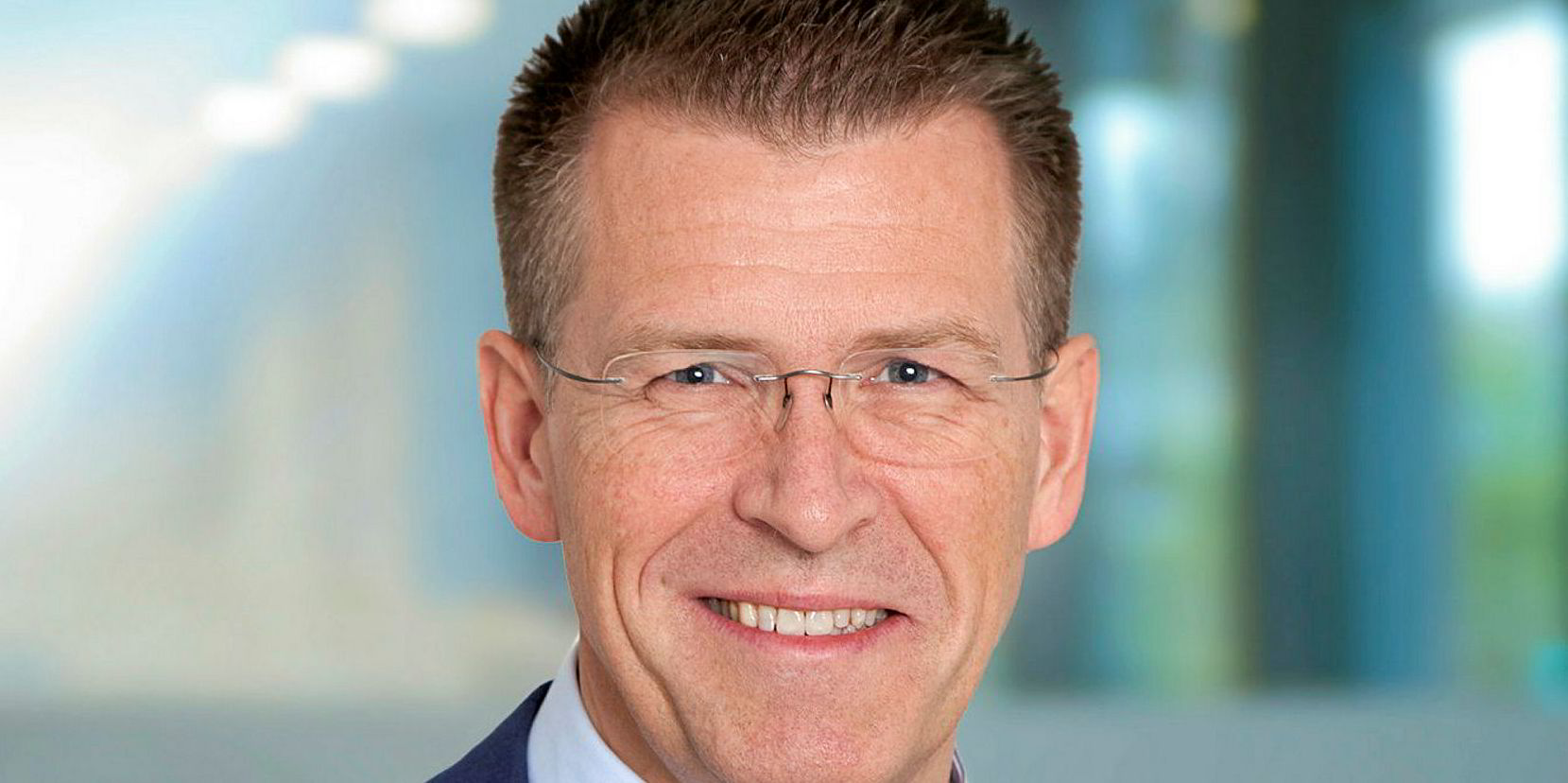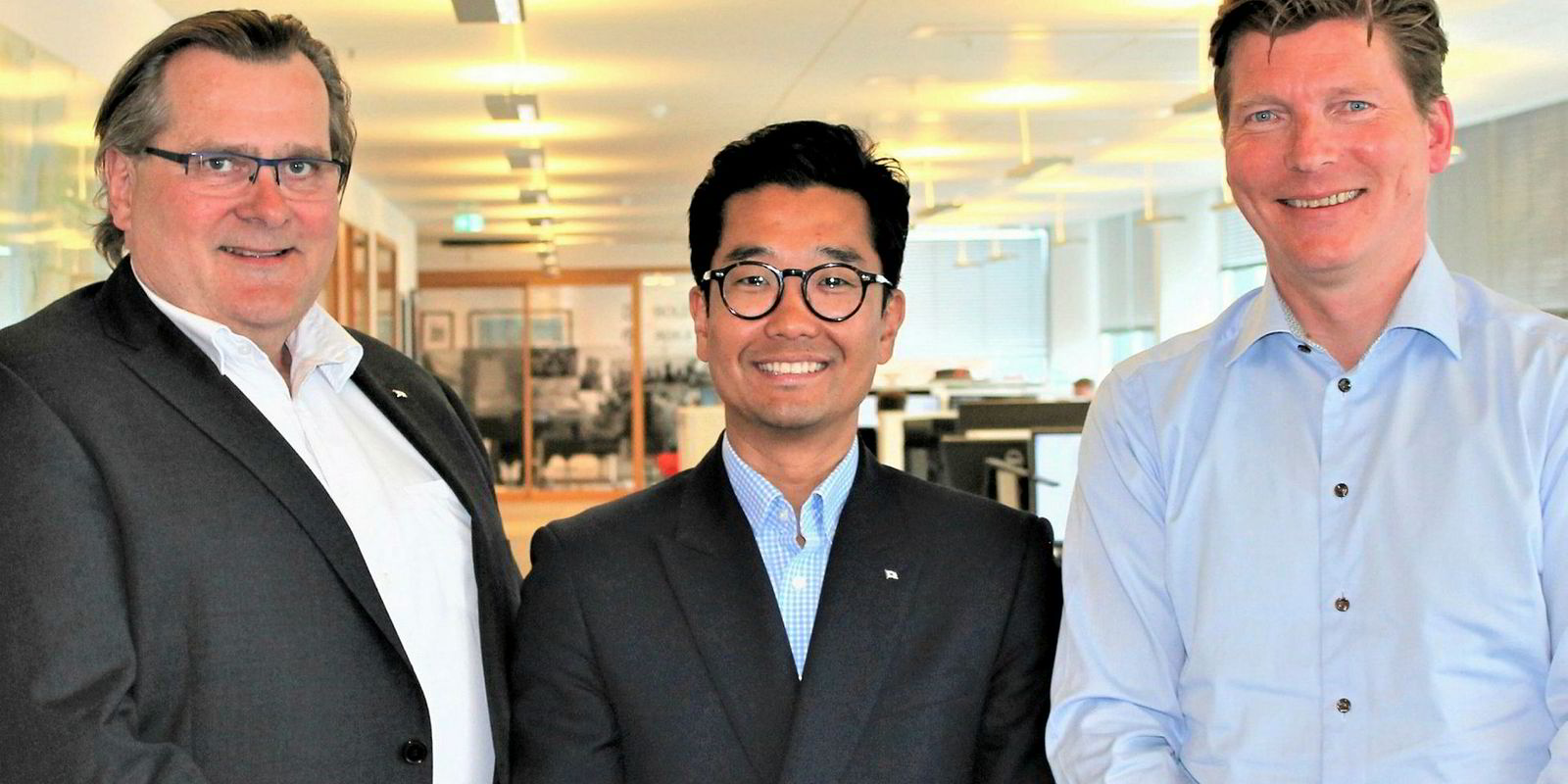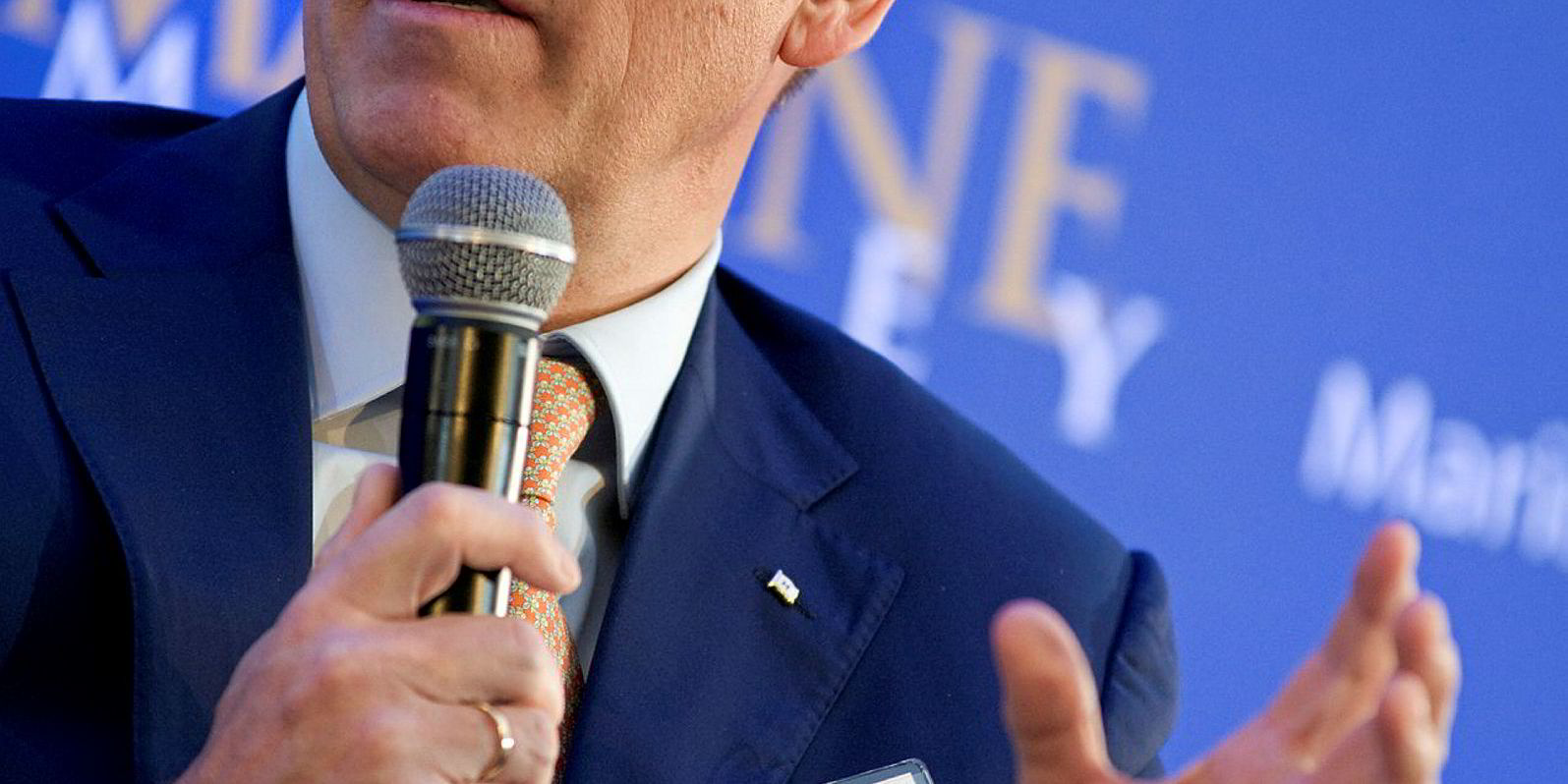Car carrier supply and demand is reaching a balance, although it still has some way to go, Hoegh Autoliners chief executive Ivar Hansson Myklebust says.
The Oslo-based company, in which AP Moller-Maersk is a large shareholder, has achieved significant efficiency gains and Myklebust says more are to come.
“But you come to a point where we need to be better paid for our services for any long-term investment case,” he says.
Hoegh operates a fleet of about 50 vessels, of which 30 are owned. It includes a series of six post-panamax, 8,500-ceu ships constructed at China’s Xiamen Shipbuilding Industry.
Shortage in Asia
There are no firm plans to order additional newbuildings despite a shortage of vessels in Asia during the last few weeks, Myklebust says.
Right now, there is no tonnage available and we see some of the largest Japanese car manufacturers struggling to get their cargo shipped, particularly to North America
Ivar Hansson Myklebust
Espen Stubberud, Hoegh’s chief of trade and capacity, says: “Right now, there is no tonnage available and we see some of the largest Japanese car manufacturers struggling to get their cargo shipped, particularly to North America. But we expect the number of idle vessel to increase again in the months ahead.”
The decline in North American exports means operators are less keen to deploy capacity into this market.
Meanwhile, Myklebust says car manufacturers globally have benefited from decreasing unit costs for many years. They realise rates have begun to rise and they will naturally fight increases.
“That is their job to keep costs down,” Myklebust says. “It isn’t always a pleasure to have the purchase departments of some of the biggest companies in the world as your counterparts because they are hard-nosed negotiators.”
Downward pressure on rates
Ingrid Due-Gundersen, Hoegh Autoliners' chief financial officer, says transportation constitutes a mere fraction of the total cost of new vehicles, but vessel operators have seen “severe downward pressure on rates to levels which are unsustainable and do not support investment in new capacity”.
Consequently, Myklebust says careful control of costs and using the fleet in the most efficient manner is crucial and has been the focus of all operators in the past few years.
“You can compare it with the airline industry where you don’t make money when a plane is standing on the ground,” he says. “It is the same utilisation game we are in.”
Due-Gundersen describes car carriers as a precise and crucial part of a global value chain, involving high-value product. She says it is the largest industry in the world and one dependent on unrestricted trading.

“This is an industry that requires free trade of finished products, but also the parts,” Myklebust stresses.
“You have the most complicated logistics trade in the world.
Car manufacturers have installed production all over the world to be able to shift production in response to things like changes in tariffs and currency, wage increases and strike risks
Ivar Hansson Myklebust
"Car manufacturers have installed production all over the world to be able to shift production in response to things like changes in tariffs and currency, wage increases and strike risks.
“That is why we need to be flexible and able to shift our trading network around.”
Fragmentation of manufacturing is something car carrier operators have been living with for many years. Today, contracts typically include a far higher number of expected load ports than 10 years ago.
Myklebust says this increases costs but also creates market opportunities, pointing to Hoegh being the biggest carrier out of India.
He says India has grown over the past five years into a significant exporter of cars, much bigger volume-wise than China.
India's export volumes stem from a combination of large and very modern capacity being installed and slower growth in domestic demand than expected, as well as favourable currency and trade agreement developments.
We have to be more agile and nimble in how we go about planning and executing what we do, but primarily it [India] is an opportunity
Ivar Hansson Myklebust
“We have to be more agile and nimble in how we go about planning and executing what we do, but primarily it [India] is an opportunity,” Myklebust says.
Norway’s absence in car manufacturing puts it at a competitive disadvantage to its Japanese and South Korean peers.
“But our strength is we have been fighting in this industry for more than 40 years and able to change our trading patterns,” Myklebust says. “Also over the past 30 to 40 years, we have been the strongest carrier out of the US and had a strong relationship with the key US manufacturers.
“Out of Europe, our home base, we have had a strong footprint, not only with the car manufacturers but loading high and heavy cargoes, and in the last three to five years, more breakbulk cargoes.”
However, Hoegh’s financial figures reflect how tough the market has been in recent years.
In 2016, the company, which includes 11 vessels on long-term bareboat leases, posted pre-tax losses totalling almost $224m after writing down the value of its fleet by $182m following what Due-Gundersen describes as a hugely challenging year.
Pre-tax loss
There have been no impairments since then, but Hoegh still made a pre-tax loss of $25m in 2017. Figures due for 2018 are not expected to see a return to the black.
“Definitely in this low rates environment, every decision counts,” she says.
This has included exiting non-profitable contracts.
But Myklebust says Hoegh has a very professional shareholder in Maersk, the “largest and most professional shipping company in the world”.
He says his company has benefited from Maersk’s experience, including benchmarking performance on everything from bunker purchases to operating costs, IMO 2020 preparations and digitalisation networks.
“Our board, with long experience in shipping, is highly qualified and requires a lot from us," Myklebust says. "But that is a good thing as it keeps us on our toes.”
Maersk holds 38.75% of the shares in Hoegh, with Leif Hoegh & Co retaining the other 61.25%.





